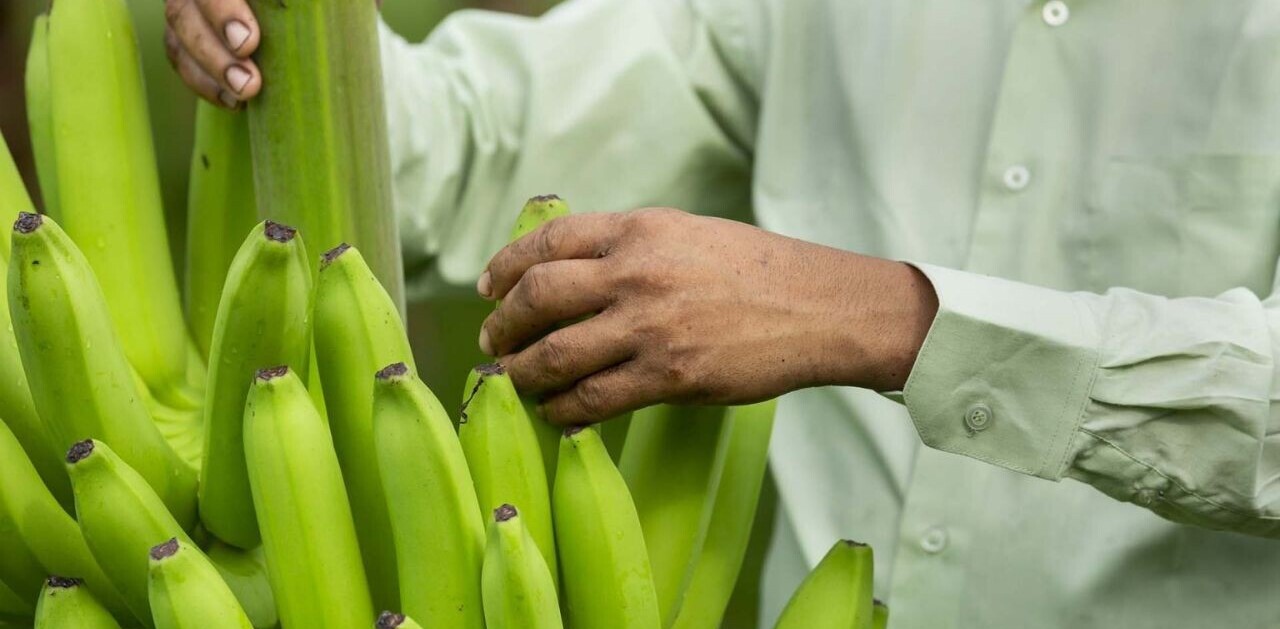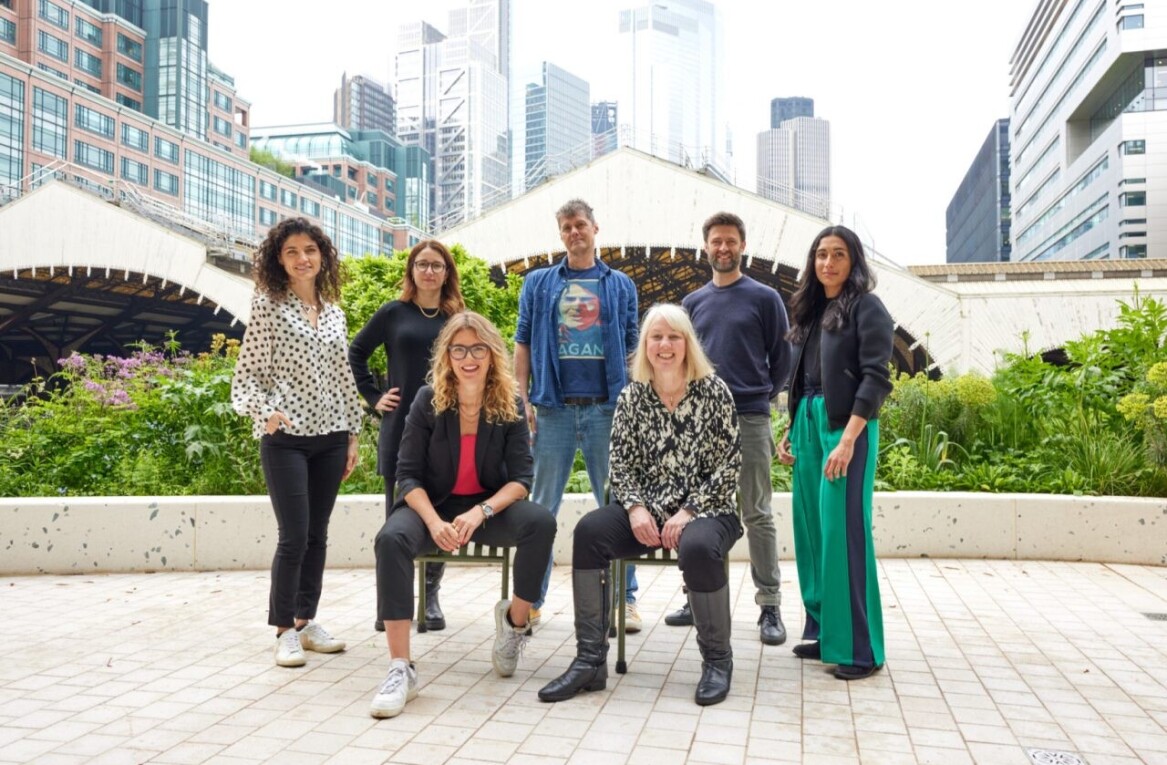
When it comes to saving the planet, the question of where to start can be overwhelming. And while larger, governmental change is urgently needed, we can all individually contribute to being part of “the solution” rather than “the pollution.”
Savvy consumerism is no longer reserved for staunch eco-warriors, and it’s easier than ever to make “green” choices. There are plenty of examples: Veja creates fashionable sneakers from recycled plastic bottles, organic cotton, or wild rubber from the Brazilian Amazon. Personal care brand By Humankind delivers shampoo bars in paper boxes and provides refills for its deodorant. Whether it’s sustainable fashion or the reusable Origami Bottle that collapses down to pocket-size, traditionally unsustainable industries are being disrupted by alternatives.
Exciting environmentally-friendly products are an easy incentive for consumers to go green. However, they should be wary of greenwashing, or when a brand’s sustainable marketing conflicts with its actual business practices.
While there are valid arguments against green materialism, there are benefits to adopting eco-friendly consumer practices. For example, according to a recent study in the Journal of Consumer Research, the “greenconsumption effect” refers to when a person uses a green product, and subsequently gets a ‘warm glow feeling,’ which is absent when using a conventional, unsustainable product.
While adopting a new sustainable lifestyle can seem daunting at first, there are a few simple practices to get you started in embracing a greener life.
There’s an app for that?
One of the easiest ways to kickstart your low-impact lifestyle is through technology. There are various sustainability apps that help you build greener habits, including getting involved in the sharing economy, using ethical brands, and starting your zero waste journey.
One example is the Olio app, which can help reduce food waste in your area. Take a photo of the item(s) you want to share and fellow app users in the neighborhood — or local retailers — will get an alert. You can then connect and arrange a pickup time for the food you might otherwise throw away. The app has also been a valuable resource during COVID-19, allowing users to help vulnerable neighbors who may be struggling to afford food.
Daily online purchases — from takeout to essential products packaged in plastic — have sky-rocketed during the pandemic. Globally, only 20% of plastic is recycled per year, with the majority ending up in landfills. The My Little Plastic Footprint app promises to help users track their progress toward zero waste and focus on sustainable consumption. The app makes it easy for users to see what kitchen products or garden products they shouldn’t use, such as water boilers, flip flops, and balloons.
While a self-care routine is important — occasional self-indulgence is necessary to stay sane — beauty brands and cosmetics can be especially harmful to the environment. The Think Dirty app helps users learn about which beauty products contain potentially toxic ingredients. All you need to do is scan a product barcode and the app will use its “Dirty Meter,” which takes into account ingredients, certifications, and health impacts. It then offers suggestions for cleaner alternatives.
Make a green home
It doesn’t take much to give your household an eco-friendly makeover — especially while much of the world is still cooped up inside. Here are several practical (and affordable) solutions for a greener and healthier home.
Combat energy vampires
Vampires do exist — but not in the way you’d expect. By keeping plugged devices on — from curling irons and computers, to phone chargers — you’re unknowingly contributing to higher greenhouse gas emissions. The energy wasted by devices that keep running in standby mode is also known as vampire power or ghost load. Switching to a smart power strip allows you to monitor and manage your devices anytime and anywhere. By using less energy, you’re saving money and the planet.
Opt for green lightning
Another budget-friendly option to reduce your home’s energy waste is changing your regular light bulbs to Compact fluorescent bulbs or LEDs. Regular bulbs consume a lot of energy, which is mostly wasted. CFLs are eco-friendly, generate less heat, and are more efficient than regular bulbs, but have a shorter lifespan than LEDs. LED bulbs use 75% less energy, are more durable (last 25 times longer than your regular bulb), and offer the best light quality.
If you want to take it a step further, you can splurge on smart lighting. Smart light bulbs come with a dedicated app that allows you to dim the lights, set a timer, or change colors. Motion sensor lights will turn off automatically when you leave a room. Smart switches and other lighting systems can be controlled remotely, which means you can turn the lights on and off depending on your habits, time of day, without getting up from your couch.
Reduce water waste
We all need to brush our teeth, do laundry, wash dishes, and take showers. But if you’re not mindful, the amount of water you use daily can be a massive waste. With climate change causing droughts around the world, it’s important to limit your water usage, and save water where you can. Sustainable water use is easily implemented with low-flow faucets and smart showerheads, which use much less water and still get you so fresh and so clean.
Put your money where your mouth is
Across industries, companies are slowly adopting sustainable policies and contributing to a low-carbon future. In the finance sector, more banks are committing to sustainable finance solutions, which sees them consciously managing customers’ money with a focus on environmental and social impact. If you switch to a socially responsible bank, the money you’re depositing into your account will do the work for you, and for the planet.
At bunq you can sign up for the SuperGreen program, a subscription that promises subscribers will become CO2 free within two years. Together with non-profit organization Eden Reforestation Projects, bunq “plants a tree for every 100 EUR you spend on any of your cards,” bunq CEO Ali Niknam told TNW. “Therefore, you make a difference and the world a greener place without any extra effort. You can even see a digital version of your own forest in the bunq app.”
As of now, the bank has planted 709K trees with its members and plans to hit one million by the end of February 2021. Bunq also created a way for users to turn their green efforts into a community game, called Tribes: “It made planting trees even more fun, a way for users to get together and help create their own mini-forest,” Niknam said.
Accountability and transparency are necessary to measure companies’ sustainability practices. You can read more about bunq’s efforts in their latest sustainability report.
When it comes to corporate sustainability, bunq reached one of their goals in 2019, when all their data centers went 100% green, massively reducing C02 emissions. “We continue to be actively mindful of waste, banning the use of plastic cups, and encouraging all employees to recycle. In fact, 93.4% of bunq staff already commute by either bike or public transport. Sustainability is a key consideration in everything we do, it is both a requisite for our growth but also the result of it.” Niknam told TNW.
Rent, don’t buy
While buying sustainable products is better than nothing, the most eco-friendly way to consume is to not consume at all. Think like Marie Kondo: “Does it spark joy?” Consuming recklessly has led many to realize that no, it doesn’t, and there’s currently a shift away from an ownership economy.
According to a 2019 BBMG survey, more than 9 in 10 respondents said that “having meaningful relationships with others” and “living a healthy, balanced life” are important factors for a good life, while “owning a home” and “owning a car” were seen as less important.
Across industries, rental and resale services contribute to a circular economy, which reduces waste and uses sustainable resources. There’s now a borrowing option for almost everything: rent holiday homes and living spaces with Airbnb, travel without owning a car via Lyft, and rent clothes from Rent the Runway. You can even fill your office or home with rented furniture from Ikea, Muji, and Feather.
When it comes to the few things you can’t rent, there is often a refurbished or sustainable version. Fairphone offers sustainable smartphones that actually last — or consider a refurbished smartphone. Companies such as Loop offer a circular shopping and delivery service, with everyday products wrapped in premium and reusable packaging.
So instead of splurging on the latest iPhone or fast-fashion trend, renting, buying refurbished, or simply using what you already have are the greener options.
A sustainable future
While we all have a part to play in making the world a better place, environmental responsibility is not an individual burden. Politicians and companies need to encourage and facilitate personal sustainability behaviors towards environmental change.
Companies need to invest more in the preservation of natural resources. They must ensure environmental protection so that it’s able to regenerate at a healthy pace, as well as ensure they are championing nontoxic products and services. Thanks to new sustainable options, it’s easier than ever to switch out your current household products, routines, and bank accounts to ones that leave a lighter footprint.
It’s time to turn green intention into green action.
Get the TNW newsletter
Get the most important tech news in your inbox each week.






